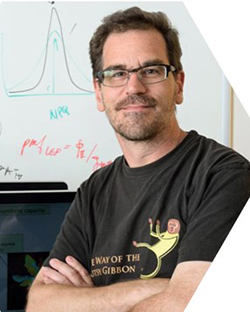|
08:00 – 17:30 |
Excursion with demonstrations and presentations at: |
This day will provide exciting insights into plant phenotyping within German Plant Phenotyping Network (DPPN). It will include visits to facilities at Forschungszentrum Jülich and Campus Kleinaltendorf, where participants will learn about unique plant phenotyping technologies, activities and best case examples provided by the users of these facilities within the framework of the project DPPN-ACCESS 2.0 funded by the BMFTR (Grant Agreement FKZ031B1500).
Bus transfer and lunch will be provided and is included in the conference fee. Participation without prior registration to the conference will not be possible.
Participants will meet at 8:00 am local time in Campusallee (Carl-Troll-Straße 31), 53115 Bonn (next to LIMES building). Please be there in time to allow for relaxed bus boarding (and further organisation) and note that buses will leave at 8:30 am sharp.
To enter the Forschungszentrum Jülich, you must present your identity card or passport. Please remember to bring it with you!
The end of the excursions will be around 5:30 pm local time, and buses will drop the participants at the initial meeting point.
Please note, depending on the weather, it's best to bring a jacket and something to protect you from rain as we will also visit facilities in the field.

Detailed Program
Destinations: Forschungszentrum Jülich (FZJ) & Campus Klein-Altendorf (CKA)
Groups: 4 different groups (guides on site will divide the groups).
Transport: 4 buses will take participants from Bonn (Campusallee, 53115 Bonn, next to LIMES building – GPS: Carl-Troll-Straße 31) to FZJ and CKA, and back.
Meeting point: 08:00 am at departure place (buses leave latest 08:30 am).
Please bring your ID card or passport for entry to FZJ!
Group Allocation
- Groups “Sugar Beet” & “Barley” → FZJ first, then CKA
Guides: Felix Kröber, Robert Koller - Groups “Safflower” & “Field Bean” → CKA first, then FZJ
Guides: Mark Müller-Linow, Roland Pieruschka
Forschungszentrum Jülich (FZJ, IBG-2)
Address: Forschungszentrum Jülich, Leo-Brandt-Straße, IBG-2
Presentations (Large Seminar Room)
- Uli Schurr (FZJ): Introduction to DPPN & Access in EuropeDPPN-Access users:
- Parviz Moradi (JKI): Screening of Mentha breeding material for drought stress tolerance using High-throughput Phenotyping (HTP) platform
- Nadia Kamal & Kilian Pfatrisch (TUM): Drought Resistance in Oat for a Changing Climate
- Michael Drzisga (MLU): Root and tiller phenotyping to identify new variation for barley breeding
Greenhouse Demonstrations
- Kerstin Nagel / Mark Müller-Linow : GrowScreen-Rhizo 3
- Robert Koller / Ralf Metzner: MRI
- Matthias Meier: Agri-PV
Campus Klein-Altendorf (CKA)
Address: Campus Klein-Altendorf ("Nord"), Campus Klein-Altendorf 1, 53359 Rheinbach
Machine Hall South
- Thomas Beyel & Christian Brünker: Welcome to CKA and functionalities
- Onno Muller: Breedface operation (demonstration from bus/outside)
Forum
- Uwe Rascher et al (IBG-2): Field Phenotyping
- André Cornelißen (PhenoRob): Robotics in field phenotyping
Networking
- Fair with drinks around the forum
Timetable Overview
08:00 – Meeting at Bonn (Campusallee, 53115 Bonn)
08:30 – Bus departure
Morning – Groups divided: Sugar Beet & Barley → FZJ, Safflower & Field Bean → CKA
Lunch & Transfer – Switch locations
Afternoon – Groups continue program at second site
17:00/17:30 – Return to Bonn
|
08:30 - 11:00 |
Registration / parallel workshops in small rooms -> separate program |
|
Welcome and Opening |
|
|
11:00 - 12:00 |
Uli Schurr, FZJ |
| 12:00 - 12:30 |
Impact of plant phenotyping Key lecture: Astrid Junker, Syngenta |
|
12:30 - 13:30 |
Lunch |
|
Session 1.1: Phenotyping for stress resilience and tolerance |
|
|
13:30 - 15:00 |
Chair: Lukáš Spíchal, Palacký University Olomouc Key lecture: Anne-Katrin Mahlein, IFZ Lina Hempel, Humbold-Universität zu Berlin Dan Jeric Arcega Rustia, WUR Antonio El Chami, University of Tuscia Poster Pitches: |
|
15:00 - 15:30 |
Coffee & Snacks / Speakers corner - meet the speakers |
|
Session 1.2: Phenotyping for stress resilience and tolerance |
|
|
15:30 - 17:00 |
Chair: Michela Janni, CNR Key lecture: David Kramer, Jan IngenHousz Institute Rachna Behl, HMGU Liang Tang, Nanjing Agricultural University Frederike Stock, ANU Poster Pitches: |
|
17:00 – 17:30 |
Coffee & Snacks / Speakers corner - meet the speakers |
|
17:30 – 19:00 |
Poster session |
| Session 2: Phenotyping for innovative practices | |
|
09:00 – 10:30 |
Chair: Francisco Pinto, WUR Keynote lecture: Fabio Fania, CREA Laura Lescroart, CIRAD Lejun Yu Poster pitches |
|
10:30 - 11:00 |
Coffee & Snack / Speakers corner - meet the speakers |
|
Focus Session: AI for phenotyping |
|
|
11:00 - 12:30 |
Focus Session 1.1: AI in plant sciences and beyond Ribana Roscher, Forschungszentrum Jülich Marija Popovic, TU Delft Spyros Fountas, Agricultural University of Athens Jens Behley, Universität Bonn |
|
12:30 - 13:30 |
Lunch |
|
13:30 - 15:00 |
Focus Session 1.2: Key stages of an AI project David Rousseau, University of Angers Ribana Roschner, Forschungszentrum Jülich |
|
15:00 - 15:15 |
Group photo |
|
15:15 - 15:45 |
Coffee & Snacks / Speakers corner - meet the speakers |
|
15:45 - 17:00 |
Poster Session |
|
17:00 - 18:30 |
Early Career Professionals Network (ECPN) ECPN Introduction: Panel Discussion: Flash Presentations: |
|
19:00 – 22:00 |
Conference dinner at the venue |
|
Session 3: Phenotyping the hidden half |
|
|
09:00 – 10:30 |
Chair: Robert Koller, FZJ Keynote lecture: Kristian Thorup-Kristensen, University of Copenhagen Wanneng Yang, Huazhong Agricultural University Marion PRUDENT INRAE – Bourgogne Franche Comté Laura Verena Junker-Frohn, FZJ Poster pitches |
|
10:30 - 11:00 |
Coffee & Snack / Speakers corner - meet the speakers |
|
Panel Session: Future development in plant phenomics |
|
|
11:00 - 12:30 |
Impulse presentation and discussion Agata Gulisano European Commission |
|
12:30 - 13:30 |
Lunch |
|
Session 4: Phenotyping for improvement of yield and quality |
|
|
13:30 - 15:00 |
Chair: Kerstin Neumann, IKP Gatersleben Keynote lecture: Pierre Matre, INRAE Jana Kholova, Palacky University Olomouc Madhuri Paul, Universtiy Bonn Marianne Gani, INRAE Poster pitches |
|
15:00 - 15:30 |
Closing |
Sessions description
EPPS will provide a platform for the presentation of recent results in dedicated plenary and poster sessions, it will demonstrate the impact generated by plant phenomics and discuss the future development of plant phenomics. A complementary focus session will address the use of Artificial Intelligence (AI) applications in plant phenomics.
Participants can submit abstracts for oral and poster presentations related to following sessions:
-
Session 1: Phenotyping for stress resilience and tolerance
Phenotyping of traits associated wit abiotic stress and reliance as well as biotic stress tolerance under controlled and field conditions -
Session 2: Phenotyping for innovative practices
This session includes practices related to specific crops (minor crops, orphan crops, perennial crops, bioenergy crops etc. ), smart agriculture and management, intercropping systems, low input agriculture, regenerative agriculture etc. -
Session 3: Phenotyping the hidden half
Phenotyping of traits associated with root architecture, growth dynamics, and interactions with soil microbiomes etc. -
Session 4: Phenotyping for improvement of yield and quality
Identifying traits linked to higher productivity and superior nutritional or market value, breeding applications under controlled and field conditions
Additional the sessions include (no abstract submission possible):
-
Excursion
One session in a greenhouse and one session in a field site with demos and presentations -
Focus session: Basic and advanced use of AI in plant phenomics
The session will explore the transformative role of AI in plant phenomics, with invited speakers sharing insights into its basic understanding of AI and advanced application followed by a discussion about the role of AI to address complex challenges in plant science -
Panel discussion: Future development in plant phenomics
The discussion will include an impulse presentation outlining future challenges in agriculture in Europe and address the future directions of plant phenomics to address these challenges including input from researchers, practitioners, and policymakers
Keynote speaker
|
Astrid Junker |
Astrid Junker is a digital transformation and phenomics expert with a distinguished career in agricultural technology and digital innovation. Since 2021,she is serving as Global Head Phenomics at Syngenta Seeds GmbH. In this role she is developing, testing and implementing automated and digitized data capture solutions to effectively benefit trialing and operations in plant breeding. She also managed a company-wide digital transformation initiative including the lead of cross-functional development teams and the deployment of a new trialing software across regions. Previously, she held the position of Research Group Leader at IPK Gatersleben (2018-2020), where she coordinated phenomics facilities and had a research focus on crop acclimation dynamics. From 2012 to 2020, she served as Scientific Coordinator for the German Plant Phenotyping Network, where she designed and implemented comprehensive phenotyping infrastructure and established global academic partnerships. |
|
Anne-Katrin Mahlein |
Anne-Katrin Mahlein is a trained phytopathologist and studied agriculture at the University of Bonn, Germany. Since 2017 she is head of the Institute of Sugar Beet Research (IfZ) Göttingen, Germany an affiliated institute of the University of Göttingen. She studies plant phenotyping and plant-pathogen interactions using mobile sensing and the integration of intuitive and efficient data analysis methods. These digital applications are widely used in plant breeding. Main projects include the digital field trials “FarmerSpace” (BMEL) and the DFG-funded cluster of excellence “PhenoRob”. |
|
Dave M. Kramer |
Kramer's research focuses on how plants convert light into usable energy, with a special emphasis on the dynamic regulation of photosynthesis. His lab has developed innovative tools for real-time, in vivo monitoring of photosynthetic processes—tools now widely used to better understand plant performance and environmental responses. In 2023, he became the Founding Scientific Director of the Jan IngenHousz Institute in The Netherlands, heading an international effort to advance photosynthesis research and sustainable crop improvement through innovation in open. |
|
Kristian Thorup-Kristensen |
Kristian Thorup-Kristensen is professor in Crop Science at University of Copenhagen. His has worked with crop root research for many years, studying deep root growth and function of many crops under field conditions. The root research has included the significance of root growth on cover crop nitrogen recovery and on optimizing nitrogen use efficiency in crop rotations. In recent years he has worked with the development of field-scale root phenotyping facilities such as the RadiMax, and studied deep root phenotyping of different crops. Root growth is studied mainly with minirhizotron methods, in combination with studies of root function using stable isotopic tracers. |
|
Pierre Martre |
Pierre Matre is a Research Director at INRAE, Montpellier, France. His research focuses on cereal adaptation to climate change. His group develops and integrates a combination of ecophysiological, phenomics, and modeling approaches to predict the responses of genotypes to heat and drought scenarios and identify traits that can be used by breeders and integrated in genomic prediction pipelines. He is the director of the INRAE – Institut Agro Montpellier Joint Research Unit LEPSE, a PI of the French Institute on Digital Agriculture #DigitAg, and co-leader of the AgMIP-Wheat team. |
|
Marija Popovic |
Marija Popović is an Assistant Professor at the Faculty of Aerospace Engineering at TU Delft, where she is part of the Micro Air Vehicle Laboratory. Previously, she was a Junior Research Group Leader at the Cluster of Excellence "PhenoRob" at the University of Bonn and a Research Associate at Imperial College London. She completed her PhD at ETH Zurich in 2019. Her research focuses on robotics and AI, focusing on robotic exploration, active sensing, mapping, computer vision and machine learning. |
|
Ribana Roscher |
Ribana Roscher is Professor of Data Science for Crop Systems at the University of Bonn and Forschungszentrum Jülich, Germany. Her research is positioned at the interface of machine learning, remote sensing, and agricultural and environmental sciences. She focuses on interpretable, uncertainty-aware, and data-centric machine learning methods to better understand plant processes and extract scientific knowledge from complex and imperfect data. Her work tackles challenges such as learning under real-world field conditions, handling sparse or noisy labels, and improving model explainability to support decision-making in crop production and environmental monitoring. |
|
Jens Behley |
Jens Behley is a lecturer at the Department for Photogrammetry and Robotics at the University of Bonn. His research interests include perception for autonomous vehicles and agricultural robotic applications. He finished his habilitation at the University of Bonn in 2023. From September 2008 to July 2015, Jens worked at the Department for Computer Science III, University of Bonn, and he successfully defended his PhD thesis in January 2014. He is an Associate Editor at IEEE Robotics and Automation Letters (RA-L).
|
|
Spyros Fountas |
Dr. Spyros Fountas is Professor in Precision Agriculture at the Agricultural University of Athens, Greece. He holds an MSc from Cranfield University in the UK in Information Technology and PhD from Copenhagen University, Denmark in Systems Analysis on Precision Agriculture. He was also Visiting Scholar at the Agricultural and Biological Engineering at Purdue University in the USA. He is currently Editor-in-Chief in the ELSEVIER journal “Smart Agricultural Technology”.He has been Keynote speaker in various international Conferences and Fairs. He has participated in more than 40 European funded projects, where he has been coordinator in 6 projects related to the application and evaluation of new technologies in agriculture and rural environment. He has published more than 200 papers, including peer-review journal, conference papers and book chapters and he has 11,500 citations (Google scholar – July 2025). |
|
David Rousseau |
David Rousseau is a Professor in Data Sciences at the Université d'Angers France and a member of INRAe center there. His research focuses on artificial intelligence and machine learning applied to life sciences, with a particular emphasis on plant phenotyping and envirotyping. He develops digital tools to measure plant traits and to extract meaningful biological information from images, time series, and sensor networks. His work makes use of advanced modalities such as X-ray imaging, hyperspectral imaging, 3D imaging, .... A central aspect of his research is the design of robust pipelines for image analysis and deep learning models that enable high-throughput and reliable measurements in agriculture and plant biology. Collaboration with experts in biology, physics, and computer science is key to validating these methods on real and diverse datasets. In addition to methodological development, he contributes to discussions on data governance, AI project management, and best practices for reproducible research. Overall, his activity bridges AI innovation and applied plant sciences, providing both fundamental insights and practical tools with impact on research and industry. |
|
Frank A. Ewert |
Frank A. Ewert is Scientific Director of the Leibniz Centre for Agricultural Landscape Research (ZALF) in Müncheberg and Professor of Crop Science at the University of Bonn, Germany. His research focuses on the analysis and modelling of crop systems in relation to climate change, food security and sustainable intensification. He has also worked on integrated modelling and on scaling up crop system responses to larger landscape, national and global levels and on using digital technologies for sustainable and resilient crop production. Frank has been member and chair of many national and international advisory boards. He has been PI and coordinator of several larger national and international collaborative research projects. Most recently, he is PI and member of the steering group of the DFG Excellence Cluster PhenoRob and spokesperson of FAIRagro within the NFDI. Frank is in the AgMIP leaders forum and co-leads AgMIP-Wheat and scaling and aggregation. |











